Kenneth Eugene Smith’s pastor says convicted killer is ‘really struggling’ ahead of first execution by nitrogen gas – as he eats final meal of steak, hashbrowns and eggs
The prison chaplain of Kenneth Eugene Smith, the first American inmate to be put to death with nitrogen gas, revealed that the death row resident was “really struggling” in his final hours.
Smith’s Hail Mary request to the U.S. Supreme Court to stay his execution was denied Thursday evening, hours before he asphyxiated from nitrogen hypoxia.
Pastor John Ewell told DailyMail.com hours before Smith’s scheduled execution that he was struggling to come to terms with the experimental execution method.
“He’s strong for his family, but it’s tough,” he said outside the William C. Holman Correctional Facility in Atmore, Alabama, where Smith was pronounced dead at 8:25 p.m. local time.
He was sentenced to death in 1996 for the 1988 murder of a pastor’s wife, receiving only $1,000 for the murder.
Kenneth Eugene Smith was sentenced to death in 1996 after admitting to killing the wife of a preacher-for-hire, who was beaten and stabbed in 1988.
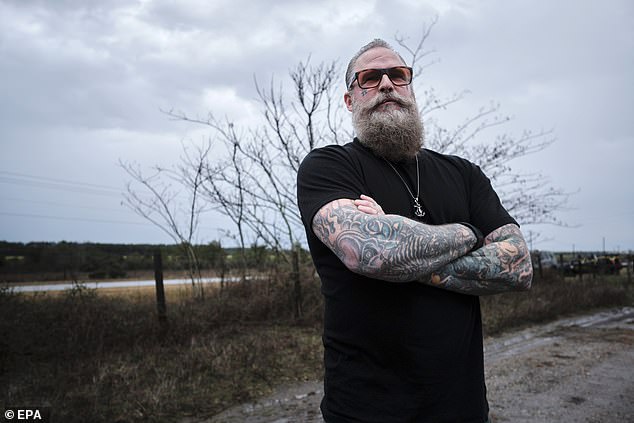
Prison chaplain John Ewell told DailyMail.com that Smith was “really struggling” in the hours before his execution. He said he was ‘strong for his family, but it’s tough’
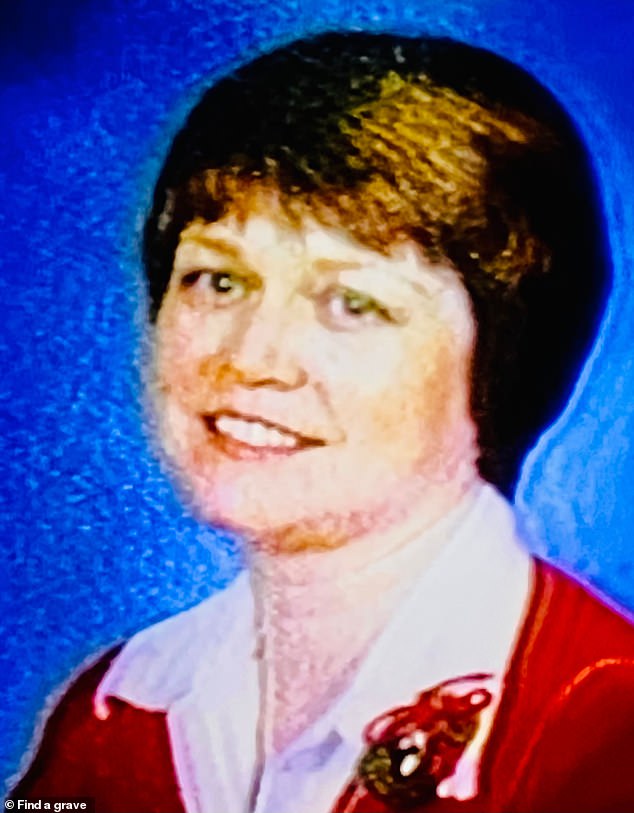
Smith was sentenced to death in 1996 for the murder-for-hire of 45-year-old Elizabeth Sennett, who was found dead in her home in Colbert County, Alabama, on March 18, 1988. She had been stabbed eight times in the chest and once on each side of the neck
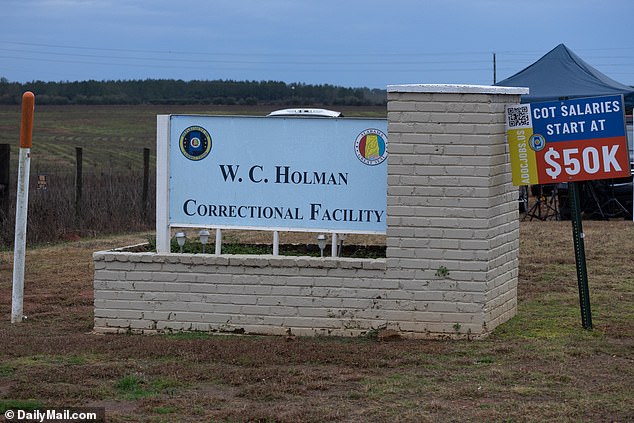
Pastor Ewell spoke from outside the William C. Holman Correctional Facility in Atmore, Alabama, where Smith is still waiting to enter the room
According to the Alabama Department of Corrections, Smith’s last day began when he refused a breakfast of eggs, biscuits, grape jelly, applesauce and orange juice.
He was then given a tray for lunch, but again refused it, although he did drink Mountain Dew and Pepsi.
Smith was ordered to drink only clear liquids from 4pm after barely touching his last meal of steak, hashbrowns and eggs.
The last meal reportedly came from Waffle House, slathered in steak sauce, before he had one last phone call with his wife, Deanna Smith.
In his desperate appeal to halt his execution, Smith begged for it to be abolished, citing his fears that the experimental gassing method will cause excruciating pain or make him vomit.
The Supreme Court yesterday rejected a request for a postponement. He filed another request with the court today as the execution neared, but it was denied Thursday evening.
Pastor Ewell said Smith relied on his faith to get him through his final moments, adding, “He’s a godly man and he loves Jesus, but things like this would be hard for anyone.”
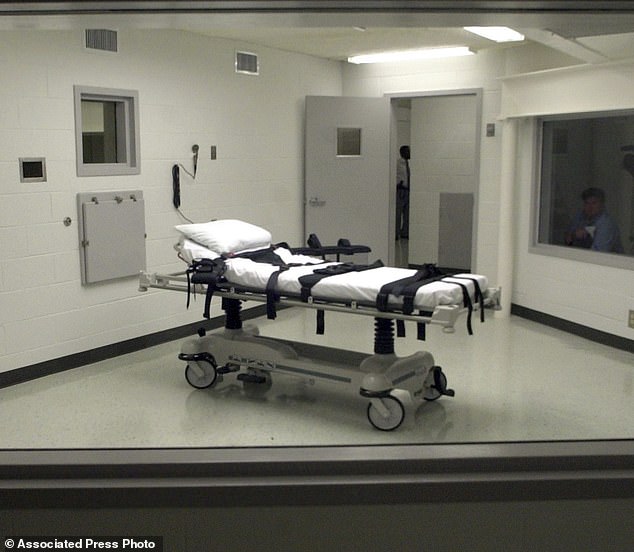
The Alabama Lethal Injection Chamber at Holman Correctional Facility in Atmore, Alabama, is pictured in this Oct. 7, 2002 file photo. Kenneth Smith, 58, is scheduled to be executed on Jan. 25, 2024
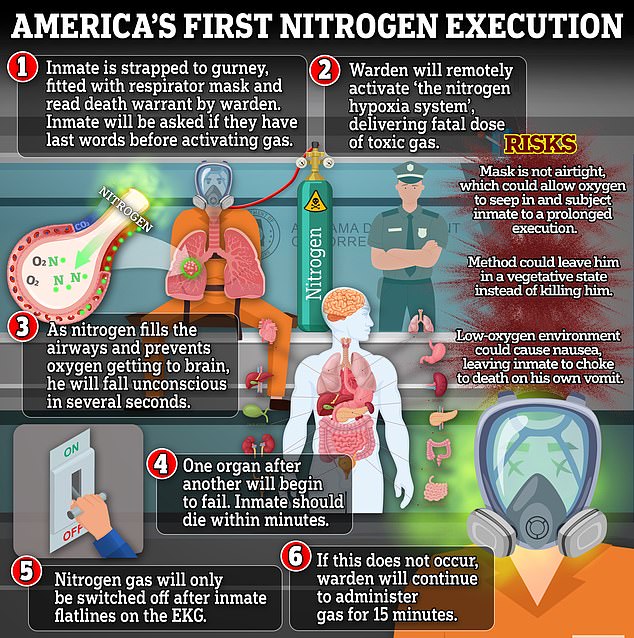
Smith’s planned execution with nitrogen gas has been branded ‘torture’ by the UN, and scientists have largely banned animal testing
Ewell said he has seen Smith every week for the past two years, including when Smith was previously scheduled to be executed on Nov. 17, 2022.
That execution failed as Smith lay on the execution table because prison staff failed to insert an IV line for hours, causing the killer extreme pain and eventually causing him to wet himself.
Ewell said Smith was expected to be dejected before possibly entering the room, but that he was “very hopeful that this thing would be stopped.”
“I was with him about a year and changed ago when they did this before, and I think he’s hoping it gets stopped again.”
Ewell was not in the execution chamber when Smith was put to death, while the Rev. Dr. Jeff Hood was instead chosen as the spiritual advisor in the room.
Hood also condemned the execution style, saying in a statement beforehand: “The eyes of the world are on this impending moral apocalypse.
“Our prayer is that people will not turn their heads. We simply cannot normalize the suffocation of each other.”
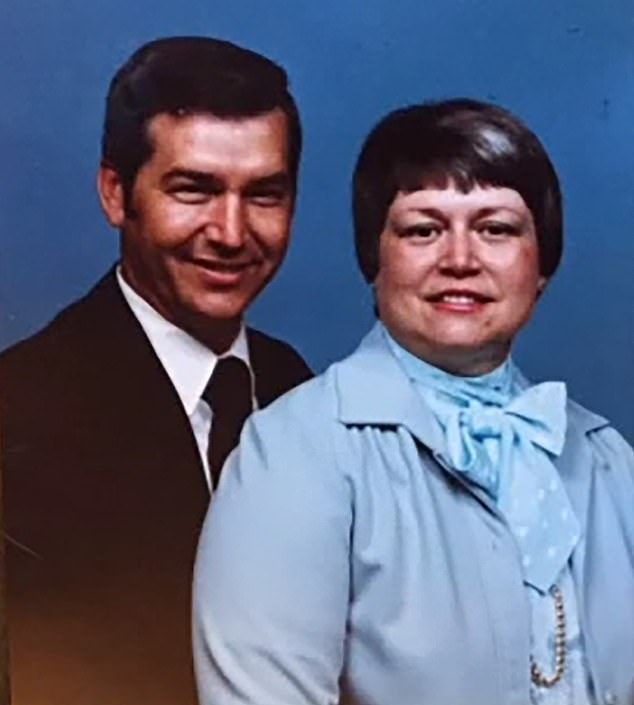
Elizabeth’s preacher husband Charles Sennett Sr. paid Smith and another man, John Forrest Parker, $1,000 each to kill his wife, hoping to cash in on her insurance. Charles later committed suicide when he came under suspicion
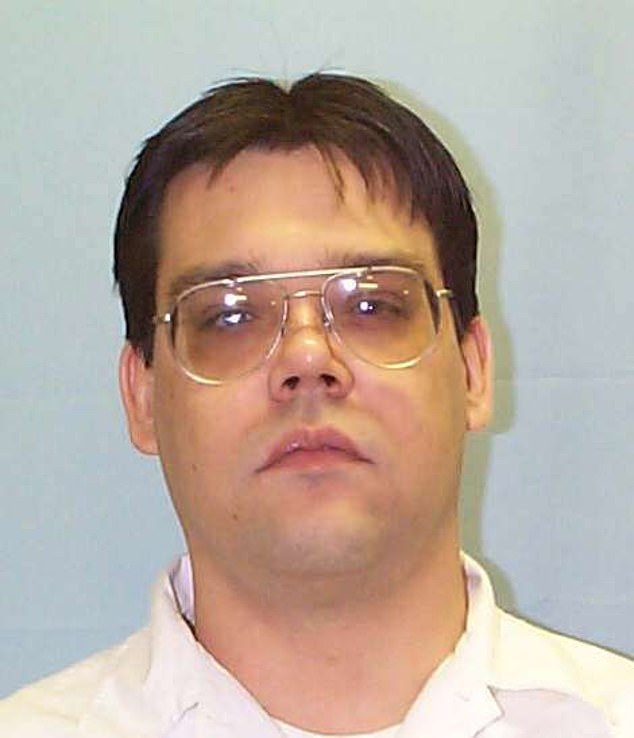
John Forrest Parker, the other man convicted of the murder, was executed in 2010
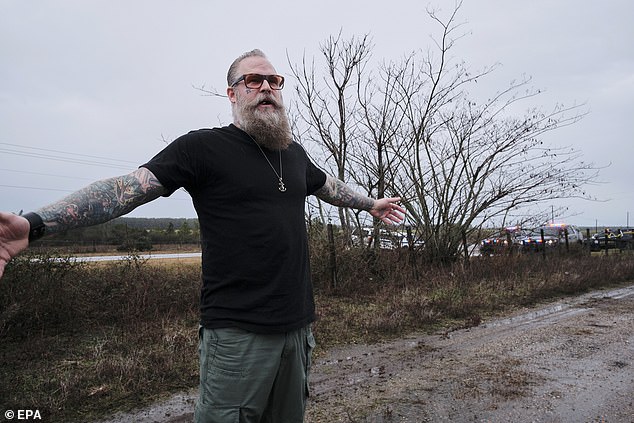
Pastor Ewell said Smith relied on his faith to get him through his final moments, adding, “He’s a godly man and he loves Jesus, but this stuff would be hard for anyone.”
Ewell said he was not aware of Smith’s crime and did not want to find out. He said the man he met behind bars was a “godly man, and that’s the hard part.”
While Ewell hoped the execution would be called off again, others felt Smith’s 1988 crime deserved his place on death row.
At the age of 22, Smith was one of two men convicted of the murder-for-hire death of 45-year-old Elizabeth Sennett, the wife of preacher Charles Sennet Sr. who paid the men to kill his wife in an insurance plot.
His initial 1989 conviction was overturned on appeal, but he was retried and convicted again in 1996.
Prosecutors said he and John Forrest paid Parker $1,000 each for the killing, with Sennett’s husband hoping to collect on her insurance.
She was found dead in her Colbert County home on March 18 of that year with eight stab wounds to the chest and one on each side of her neck.
After learning that he was suspected of involvement in the plot, Charles Sennett Sr. suicide.
